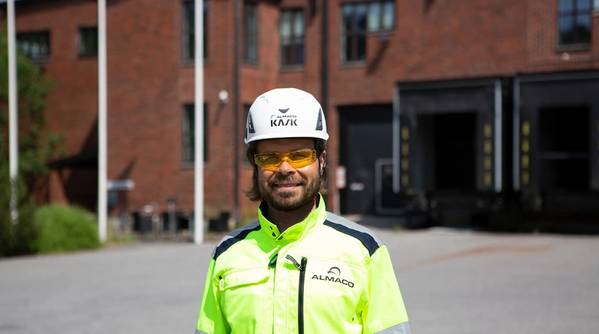
Knowledge, skill, and experience form the foundation of a successful project. But with the right mindset on top of that, the project team can multiply the success. In this blog post, Tommi Virta teaches us about the impact of a project team’s mindset on the end result. An “outward mindset” can perform miracles in a project and bring more meaningfulness and well-being to the project team.
After working on many different projects for many years, I have had the honor of working with all kinds of people and personalities. This has awoken a strong interest in organization culture, teamwork, performance, and leadership. The Arbinger Institute has published an interesting book called Leadership and Self-deception*, where they explain how a team’s mindset affect its performance and wellbeing. According to them, there are two main mindsets. You can either lean towards an inward mindset or an outward mindset. With an inward mindset, you treat people as objects without considering their needs and feelings. You focus on completing your own task without thinking about how to help others and the success of the project as a whole. You act according to what you need and what your role in the project is. The focus is more narrow-minded, and the goals and objectives are self-centered.
With an outward mindset, you care about your co-workers and see them as people with all that this entails. You care about the work of others and the end result of the team effort. The focus is “how can I help”, not “what is my job”. Realizing the difference and changing the mindset of the project team has a big impact on the quality of the work and the well-being of the team.
An outward mindset is essential for efficient collaboration in projects
In a sailing race, we have a number of people working together on board in their own positions. All of them depend on each other in order to be able to perform their duties. If a team member suddenly needs help, they quickly run over to be at service. They stay focused on the race as a whole as well as on their own role in it, always realizing that it’s the sum of the joint effort and teamwork that counts in the end.
This same ideology applies to organizations, especially in complex project organizations where different teams work together on the same project. Let’s say as an example, that an engineering team and a purchasing team are working on a project. If the Purchaser cares more about ordering from the easy-to-go-to regular supplier than finding a faster, but a more effort-demanding alternative, his or her individual target can be met, but the project might be delayed. If both teams have an inward mindset, they see all their tasks as just tasks that they must complete. With that kind of mindset, the purpose for doing those tasks is completely different from when doing them with an outward mindset. If they worked with an outward mindset, they would see those tasks as something that they are doing for the team to help complete the project they are all working on together. They would treat each other as important internal customers.
How to spread an outward mindset on a project site
Some people seem to be born with an outward mindset, but the challenge, especially in huge organizations, is that the entire organization has to think in a similar way in order for it to reach its full potential. And for that to happen, it has to be taught as part of the culture of the organization.
As a Project Manager, I consider it part of my duty to lead by example by spreading an outward mindset on the work site. This is best done by rewarding and encouraging outward behavior and making sure everybody can see that we are “building a cathedral, not just laying bricks”.
We need constant training and dedicated moments of active reflection on how the team and each member can 1) see the needs and objectives of the other team members and the project, 2) adjust their efforts and ways of working to be more helpful, and 3) find ways to measure and hold everybody accountable for the impact of their work on others and the project. It’s also important to define roles and job descriptions in a way to set the tone for serving and helping others, rather than just listing tasks to be completed.
The beauty of an outward mindset in a team, besides achieving greater results, is that it motivates and commits the team members by giving them pride and greater meaning than merely checking off their own tasks. An outward mindset is a big contributor to a culture of well-being and great achievements.



